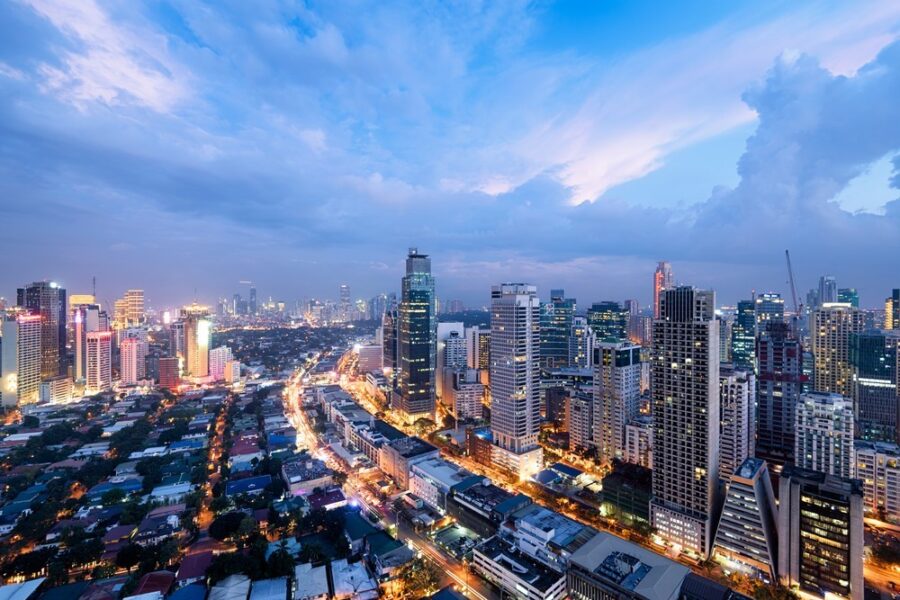Philippine Department of Justice offers PHP1 million reward for help finding POGO-linked Cassandra Li Ong

The Philippine Department of Justice has declared a PHP1 million (US$16,986)1 PHP = 0.0170 USD
2025-11-25Powered by CMG CurrenShift reward for any information leading to the location of Cassandra Li Ong, following her release from the Correctional Institute for Women last week.
According to the Philippine News Agency, Ong is currently a “key figure” in a pending government case involving POGOs and human trafficking in Central Luzon.
She was the girlfriend of Wesley Guo, brother of former Philippine mayor Alice Guo, who was convicted for running a Chinese-operated gambling centre.
In a press briefing on Tuesday, acting Justice Secretary Fredderick Vida announced that the Department of Justice was offering the award for any “credible actionable information” that would lead to the lawful discovery and arrest of Ong.
He added, “We know that in the past they had the capability. They had the capability to move around, operate, and enter or exit the Philippines without being detected.”
However, Vida has admitted that the Department of Justice is having trouble locating Ong. Last week, the Presidential Anti-Organized Crime Commission had tracked her to Japan but had no further information on her current location.
Vida added, “Definitely, with the current information that we have, we don’t have enough. That’s why we’re offering the reward. And it’s an effective tool.”
The Pasig Regional Trial Court has since ordered the cancellation of Ong’s passport, as well as the passport of former presidential speaker Harry Roque.
Earlier in the month, Philippine cybercrime investigators identified 30 influencers for promoting illegal online gambling.
Charlotte Capewell brings her passion for storytelling and expertise in writing, researching, and the gambling industry to every article she writes. Her specialties include the US gambling industry, regulator legislation, igaming, and more.
Verticals:
Sectors:
Topics:
Dig Deeper
The Backstory
Why a reward is on the table
The Department of Justice’s decision to post a reward for tips on the whereabouts of Cassandra Li Ong marks a shift from routine enforcement to high-profile manhunt. Authorities say Ong is a key figure in an ongoing case tying Philippine offshore gaming operations, or POGOs, to human trafficking in Central Luzon. Her ties to a convicted operator and her reported ability to move across borders undetected illustrate the challenge facing agencies racing to shut down illicit hubs that survived the country’s POGO ban. The reward signals urgency: investigators have struggled to track her after a sighting in Japan, and a court has canceled her passport to curtail international movement.
The search is unfolding as Manila tightens enforcement against operators, financiers and facilitators that fueled a multimillion-dollar industry now linked by officials to money laundering, scams and cross-border trafficking. Ong’s case sits at the nexus of those concerns, encapsulating how a business once licensed has morphed into a cat-and-mouse pursuit of migratory syndicates, shell companies and traffickers.
From boom to ban — and the unfinished shutdown
POGOs grew quickly after the government began regulating them in 2016, but public backlash mounted amid a surge of criminal activity attributed to the sector. President Ferdinand Marcos Jr. drew a hard line in 2024, with a sweeping directive to end the business and bar new entrants. Inside Asian Gaming reported the administration’s move to ban all POGOs with immediate effect in July 2024, framing a clear path to full closure by Jan. 1, 2025 (Inside Asian Gaming).
The accelerated exit proved complicated. Even as the deadline neared, authorities acknowledged dozens of outfits were still active, often reconstituting as tech or customer support firms to mask gambling operations. As the cutoff approached, the government said 47 POGOs remained in operation despite orders to shut down, again underscoring the enforcement gap Inside Asian Gaming documented in December 2024 (Inside Asian Gaming).
Those delays mattered. The longer illicit hubs persisted, the more time operators had to disperse assets, move people and rewire payments. The government’s subsequent arrests, deportations and asset seizures aim to unwind that head start.
Raids, deportations and a moving target
Authorities have escalated action across multiple fronts since the ban took effect. In Makati City, police uncovered a hub posing as a software firm and arrested 131 people from multiple countries, seizing devices and records tied to offshore gambling workflows. The raid swept up executives connected to a web of subsidiaries, reflecting how operators diversify corporate footprints to obscure ownership and operations. The bust and charges, including trafficking and cybercrime, were detailed after the Makati raid that netted 131 arrests.
Immigration enforcement has accelerated in parallel. The Bureau of Immigration deported 84 Chinese nationals in April following synchronized raids in Tarlac, Cebu and Parañaque, signaling a coordinated push to remove foreign workers tied to illegal sites. Officials framed the action as a warning, emphasizing overstays and undocumented entries that have historically enabled operators to cycle workers through facilities. The agency outlined the removals after its deportation of 84 people in a POGO crackdown. Weeks later, a separate operation saw 98 Chinese nationals deported, reflecting continued momentum in removals (Daily Tribune).
These steps show progress, but they also map the complexity of a supply chain that spans recruiters, landlords, tech vendors and money couriers. Ong’s case highlights the persistence of that network; investigators say she is embedded in a ring that exploited the country’s prior licensing regime and now exploits cross-border gaps to evade capture. Each raid or deportation reveals new nodes and associates, feeding into a feedback loop of intelligence that underpins the current reward offer.
Lawmakers tighten the screws
Policy hardening has accompanied the raids. Lawmakers have pushed measures to make the ban harder to evade and to punish enablers who provide safe harbor to operators. Senate leaders who pressed for a stronger statute argued the economic upside no longer justifies the social costs, particularly as scam hubs and trafficking reports proliferated around former POGO enclaves.
That campaign culminated in the passage of the Anti-POGO Act of 2025, which strengthens the nationwide ban, empowers authorities to seize properties and equipment linked to operations, and targets hosts and landlords who facilitate illicit sites. The measure follows earlier calls to harden the response and to treat the problem as transnational crime. Senate Deputy Minority Leader Risa Hontiveros urged ASEAN-led cooperation and deeper ties with partners in the United States, Australia and Europe to dismantle scam hubs and protect trafficked workers, as outlined in her push for an Anti-POGO Act with regional coordination.
The legislative arc matters for cases like Ong’s. Asset forfeiture, landlord liability and broader definitions of facilitation raise the cost of doing business for operators and their support infrastructure. As those provisions take hold, investigators gain leverage to flip insiders and trace money flows that can reveal fugitives’ movements.
Global pressure and why it matters now
The Philippines’ crackdown is part of a wider backlash against illegal online gambling. In the U.S., a bipartisan group of 50 state attorneys general urged the Department of Justice to intensify action against offshore operators that target American consumers, citing risks to young people, regulatory evasion and tax leakage. The coalition called for blocking access, seizing assets and cutting payment rails, a playbook that mirrors tools Manila is now deploying. Their appeal was outlined in a push for a federal crackdown on offshore gambling.
For Philippine authorities, that international posture matters. Operators displaced by the ban have sought new markets and routes, often moving staff across borders or pivoting to fraud schemes that victimize users abroad. Aligning with partners on data sharing, payments interdiction and extradition increases the likelihood that high-value targets can be tracked and arrested after crossing jurisdictions.
What to watch next
The reward for Ong underscores the government’s focus on dismantling leadership tiers of post-ban POGO networks, not just shuttering sites. Expect more landlord prosecutions, asset seizures and immigration actions as agencies exploit new legal tools and intelligence from recent raids. The expanded mandate under the Anti-POGO Act gives prosecutors a clearer path to target facilitators who provide cover for fugitives and to confiscate equipment before it resurfaces at new locations.
The open question is speed. Each week that key figures remain at large gives criminal networks time to adapt, move capital and redeploy personnel. If tips surface and lead to Ong’s capture, it would validate the use of public rewards and test whether the government can quickly parlay an arrest into broader conspiracy cases. If not, pressure will build for deeper cross-border collaboration, including with partners that share the same adversaries online. Either way, the stakes extend beyond one fugitive: the outcome will signal how far the Philippines has come in shutting the backdoors that kept the POGO era alive after the ban.







